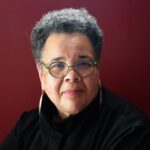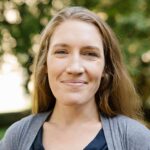Introductory Courses
Syllabi - Topic: Introductory Courses - 49 results
Select an item by clicking its checkboxA Fall 2014 course by Caryn D. Riswold at Illinois College surveys "foundational concepts of Christianity and their development in the life of the church" with attention to Christianity's relationship to other faith traditions.
A 2005 course by James Cutsinger at the University of South Carolina focuses on "introduce students to the perennialist school of comparative religious thought" with special attention to "the work of Frithjof Schuon."
A 2002 course by Joe Incandela at Saint Mary's College concerns "what religion is, what questions religion prompts and how it functions in people'sâ lives to affect how those lives are lived, how hopes unfold, and how others are encountered."
A 1997 course by Charles Ess at Drury University offers an introduction to "some of the main ideas, beliefs, practices, and historical developments of eastern religions/philosophies."
A 2007 course taught by Jonathan Lawrence at Canisius College applies "various scholarly approaches for understanding the New Testament."
A course by Gisela Webb at Seton Hall University looks "will look at Islam from the point of view of Muslims' own self understanding as it has developed since the religion's origin in 7th century Arabia. We will begin the course with the study of the basic practices, beliefs, and values of Islam-including its concept of God, the universe, revelation, prophet-hood, ethics, and the afterlife. We will look at how religious devotion is expressed through art, poetry, and mysticism." Contemporary issues in American Islam will also be studied.
A course by Peter Harle at the University of Minnesota introduces "students to the study of religion, using food as an entry point."
A 2009 course by Andrew Aghapour at the College of Charleston "designed to provide a brief introduction to major religious traditions, including Hinduism, Confucianism, Daosim, Judaism, Christianity, and Islam."
A 2012 course by Dan Hinman-Smith at North Island College is "an introduction to the world's major religions, with an emphasis upon those of the Abrahamic tradition: Judaism, Christianity and Islam."
A course by Thomas Peterson at Alfred University offers " a fundamental understanding of the general nature of religion and of various religious traditions."
A 1999 course by Daniel Breslauer at the University of Kansas introduces "Judaism, Christianity, and Islam."
A 2002 course by Andrew Fort at Texas Christian University "attempts to understand the nature of religion by looking at some foundational ideas, texts, and figures in a variety of religious traditions."
A 2003 course by Amir Hussain at California State University, Northridge "is an introduction to the academic study of religion and of world religions, and to the religious traditions of Hinduism, Buddhism, Confucianism, Taoism, Judaism, Christianity and Islam," primal religions will also be considered.
A 2013 course by Kelley Rowan at Florida International University "explores the worldâs various religious traditions and the individualâs personal experience within their chosen religion . . . [as well as] various practices, rituals, and symbols of the religions."
A 2018 course by Harold Morales surveys "the dynamic and influential world religions of Hinduism, Buddhism, Judaism, Christianity, and Islam."
A 2000 course by Diana Eck at Harvard University serves as "an introduction to five of the world's religious traditions -- the Hindu, Buddhist, Jewish, Christian and Muslim traditions" with a focus on "twentieth century adherents of each tradition."
A 1999 course by Gail Hamner at Syracuse University "introduces students to many of the classic texts that explore the phenomenon of religion."
A 2000 course by Daniel Varisco at Hofstra University introduces the concept of religion using primarily anthropological methods.
A 1998 course by Jeffrey Carlson at DePaul University explores Paul Tillich's "analysis of religion," Christianity, and Buddhism.
A 2013 course by Stuart Squires at Brescia University "surveys five different religionsâHinduism, Buddhism, Judaism, Christianity, and Islam" with attention to their similarities and differences and special focus on how they respond to the problem of suffering.
A course by Christopher Johnson "introduces students to a number of ways to approach the academic study of religion along with seven major religious traditions (Islam, Christianity, Confucianism, Hinduism, Buddhism, Judaism, and Daoism)."
A 2002 course by Darren Middleton at Texas Christian University aims to "examine and assess the major beliefs and practices of five world faiths [Hinduism, Judaism, Buddhism, Christianity, and Islam] through a careful, critical study of selected world fiction."
A 2013 course by Jean Ranier at Florida International University "considers how symbols related to the supernatural world are created and structure," their meanings and functions.
A 2013 course by Caryn Riswold at llinois College explores "the history and beliefs of several religious traditions" through "food rituals and dietary customs."
A course by Joseph Molleur at Cornell College seeks "to understand the general patterns of experience and expression that constitute the religious world" through the thought of Mircea Eliade and Black Elk.
A 1999 course by Philip Arnold at Syracuse University surveys the "inner dimensions of the 'great religious traditions, including Hinduism, Buddhism, Confucianism, Taoism, Islam, Judaism, Christianity, and 'primal' religions" as well as how they are situated within the American context.
A course by Jeffrey Bjerken at the College of Charleston "is an introduction to the academic study of religion in general and a survey of different understandings of sacred place and pilgrimage found in America and India."
A 1998 course by Dale Cannon at Western Oregon University introduces students "to the discipline of acquiring an understanding of, and communicating to others, the meaning of specific expressions of religious life in a manner that does them justice, a manner that is empathetically sensitive to the viewpoints of participants as well as appropriately objective."
A 1998 course by Michael Barnes at the University of Dayton on "the range of beliefs about the religious dimension of life, and to theories about the origin and functions of those beliefs."
A 2000 course by Alan Altany at Marshall University "is an introduction to the major religions of the world: Hinduism, Buddhism, Taoism, Judaism, Christianity, Islam."
A 2007 course by Jonathan D. Lawrence at Canisius College seeks to define religion and "identify and analyze examples of the ways religious traditions have affected history, culture, and current events, in particular the Jesuit and broader Catholic traditions."
A 2009 course by Randolph Lumpp at Regis University "introduces the academic study of religion and develops an awareness of the nature of religion, the way it functions and its role in human existence."
A course by Ehud Ben Zvi and Steven Engler at the University of Calgary surveys the "historical aspects of these traditions . . .[however] emphasis will be on the way in which these traditions are 'at work' today."
A 2008 course by Mary Suydam at Kenyon College introduces "some of the basic concepts and categories that are used by scholars in the academic study of religion. The major categories that we will study this semester are: IDENTITY, MYTH, MORALITY (or ethics), in terms of both INDIVIDUALS AND SOCIETY, RITUAL, and the SACRED."
A 2016 course by Ken Derry at the University of Toronto provides a "basic introduction to the academic study of religion, using examples from contemporary popular culture as well as Indigenous and other religious traditions."
A 1998 course by Betsy Bauman-Martin at the University of California-Riverside "provides an overview of the three formative religions of the West: Judaism, Christianity, and Islam."
A 2002 course by Jeffrey Richey at Berea College "seeks to introduce students to the comparative study of religion as well as to acquaint them with four important religious traditions: Christianity, Hinduism, Buddhism, and Islam."
A 2002 course by Omid Safi at Colgate University surveys "the religious traditions of Hindu Dharma, Buddhist Dharma, Chinese Religions, and Islam."
A 2008 course by Chad Bauman at Butler University provides a "basic introduction to the scriptures, history, thought, practice, and diverse expressions of the worldâs larger religious traditions."
A 1998 course by Ann Gold and Richard Pilgrim at Syracuse University is an "introduction to the nature and significance of religion within human culture and existence as evidenced in the various religions of the world both past and present."
A 1998 course by Ivan Strenski at the University of California, Riverside, is an introduction to the study of religion.
A course by Bryan Rennie at Westminster College offers "a phenomenological approach to the study of religion and religious experience."
A 2011 course by Ann Burlein at Hofstra University which aims to describe, analyze, and raise questions about "religion" through the lens of Judaism, Christianity, and Islam.
A 1998 course by Eliezer Segal at the University of Calgary examines "the history of Judaism, Christianity and Islam, tracing their development from their foundational scriptures-the Hebrew Bible, New Testament and Qur'an-and subsequent developments in their observances, communal structures and ideas."
A 2017 course by Dan Capper at the University of Southern Mississippi "is a basic introduction to the variety of the worldâs religions as well as methods for studying them. . . . In rapid survey we will discuss the nature of religion; indigenous religions; and the religions of Hinduism, Buddhism, Judaism, and Islam."
A 2018 course by Lynn Neal at Wake Forest University uses "myth and ritual, sources and stereotypes, identity and aesthetics, and more" to ponder what religion is and how to study it.
A course by Catherine Wessinger at Loyola University New Orleans aims to "acquaint the student with the primary religious groups of the world in order to promote an awareness and understanding of the goals that have been of ultimate concern to various peoples as well as the methods used to achieve these goals."
A 2019 course by Madison Tarleton at the University of Denver/Illiff School of Theology introduces "students to the academic study of religion" through a survey of "early theorists and anthropologists as well as examine how these theories evolved over time."

